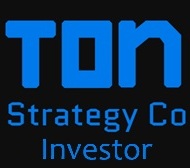Here's a different perpective The answer to you
Post# of 30081
The answer to your question is... no difference
Company A has 10,000,000 outstanding with a share price of $100 a share
Company B has 100,000,000 outstanding with a share price of $10 a share
The market cap of both companies is exactly the same: $1B
The demand for shares is exactly the same with the exception that companies that have lower share prices are sometimes more attractive to small investors.
Most people decide to invest X dollars into a stock.
Let's say $100 or $1000
They don't usually go, "I'm gonna buy me 10 shares of something today".
If they bought $1000 of Company A, they buy only 10 shares
If they bought $1000 of Company B, they buy only 100 shares
Either way they own the same percentage of the company
Company B's volume would appear to be higher, but it's all relative
Now if demand for shares is low for Company A or B, it doesn't make a difference how many shares they have outstanding.
When I look at volume and determine if there is high or low demand, I am looking at volume times the share price. Did $1000 trade that day or $1M. The actual number of shares isn't has important.
The exception I mentioned would come into play of you had a $1,000 to invest and you wanted to invest in Amazon. What do you do when the share price is over $3000? Even if you had $3000, owning only one share is something, some investors psychologically don't feel great about. If the stock goes up 10% you still make the same amount as a lower price stock going up 10% if that is any consolation.
What does make a difference is how many shared are in the float
"A company's "float" are the shares are available for trading on any given day — in other words, shares outstanding minus any restricted shares. For example, let's say Company ABC has 1 million shares outstanding and 750,000 floating shares."
Share price of stocks in companies with a tight float can really move if there is buying and especially if few want to sell.
What does make a difference is how many shared are owned by institutions that buy. That hold.
Why? Because they typically buy in bigger volumes than retail. They are not investing $100.
Let's tackle the other myth
Reverse splits cause the share price to go down
If that were true, than forward splits, cause the share price to go up, right?
Since Apple's Sept. 1 all-time closing high of $134.18 (split adjusted) to the close on Sept. 21 at $112.28
Take a look at their track record on splits. Not too good.
https://www.fool.com/investing/2020/09/23/a-h...-it-a-buy/
Same with Tesla who did the split the same day.
Did the forward split have anything to do with their temporary decline
Not really, but one could argue the hype of a split ran the stock up a bit
Not to worry, I think these companies will pull through
So why do many companies that do a reverse split go down also?
Because the vast majority are doing it for the wrong reasons...
To either survive or not get delisted
Very few companies proportionately do a reverse split to uplist. Very few.
58 companies uplisted in 2018
Do you know how many securities trade on OTC Markets?
More than 10,000
So a little over a 1/2 percent
Think about what percentage of those 10,000 would like to uplist
So why do stocks that uplisted go down?
Do they?
The ones that uplisted may have uplisted a bit too soon and not ready to explode. If you uplist and are going to do more of the same, it likely will not go well.
In Q1 2019 only 7 stocks uplisted.
"Stocks that uplisted so far this year have gained 173% in the six months, leading to uplisting."
"First quarter 2019 uplisted stocks gained 104% on average after uplisting."
Granted some of these were pot stocks, but there are sectors that get hot from time to time. Covid can be one of those if they show the revenues.
First Quarter 2019 Uplisted Stocks Gained 173% In 6 Months Prior To Uplisting
https://seekingalpha.com/article/4253790-firs...-uplisting
How Does a Stock Move From OTC to a Major Exchange?
https://www.investopedia.com/ask/answers/08/o...nasdaq.asp
 (5)
(5) (0)
(0)